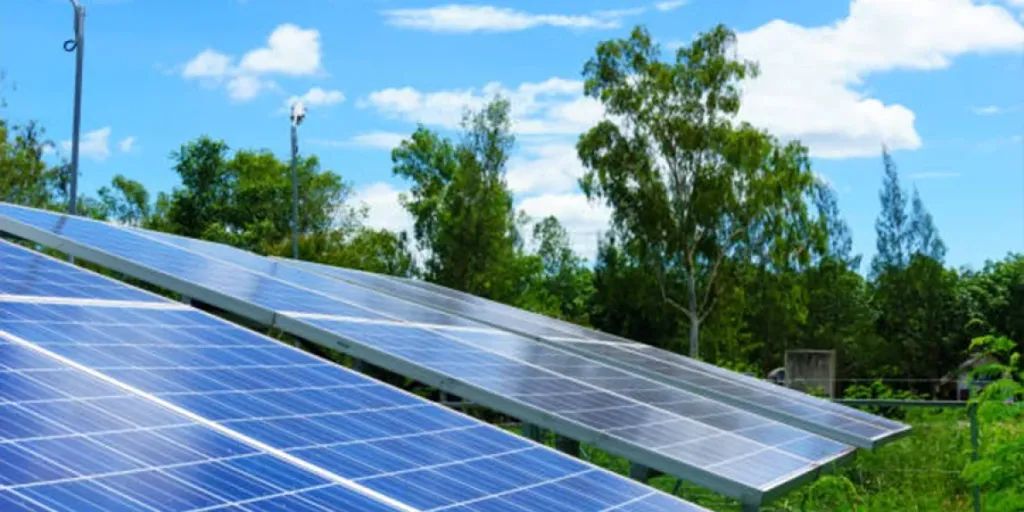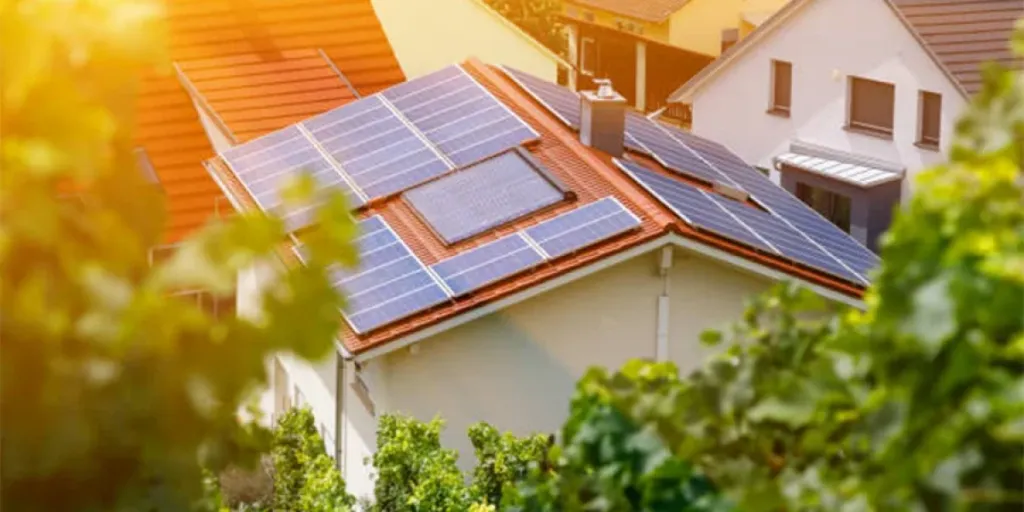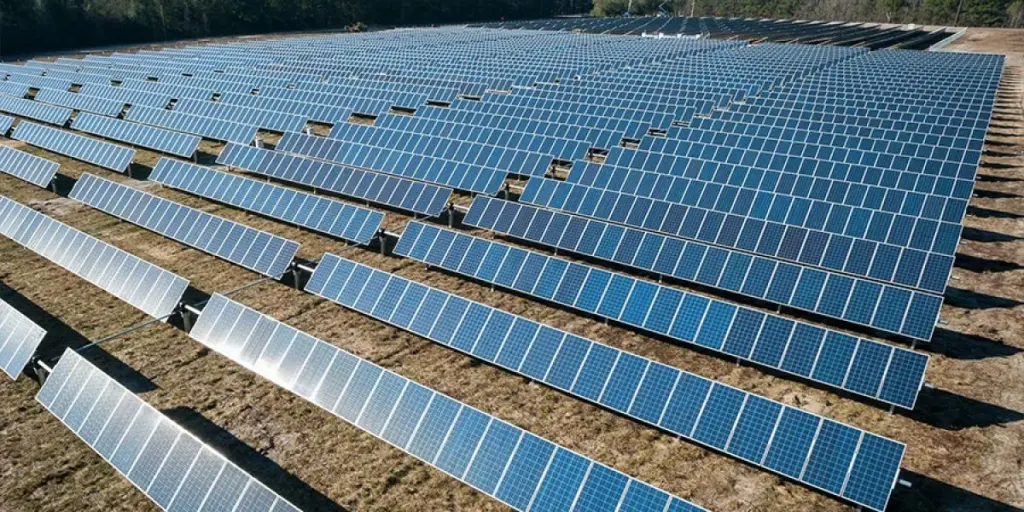One of the core reasons people are increasingly moving towards solar power is its constant electric supply that does not burn a hole in their pockets. They must choose the right solar system batteries to obtain a smooth and functional solar power system. While looking for the right battery for a solar system, one has to scan several parameters. This post evaluates all factors considered by the prospects so the wholesalers can stock the right batteries.
Table of Contents
The lucrative solar system batteries market
Tips for choosing the right battery for a solar system
What is the best solar system battery?
Conclusion
The lucrative solar system batteries market
Solar batteries are rechargeable and can be used in several applications, such as solar power plant storage, charging stations, and off-grid storage systems. This industry is progressing due to the high demand for sustainable energy storage technologies. And the global demand for batteries for solar systems is forecasted to increase over time as governments promote sustainable energy resources.
According to the International Energy Agency (IEA), the global installed storage capacity is forecasted to expand by 56% in the next 5 years and reach over 270 GW by 2026. A primary reason behind this worldwide growth is the increasing need for storage and system flexibility that fully utilizes and integrates a larger share of renewable energy into the power systems. The use of solar batteries across residential and commercial sectors makes them energy independent and enhances the self-reliance of owners.
Further, the IEA discovered that the demand for renewable energy has grown since 2015. For instance, there is a high demand for PV technology because it reduces carbon emissions and reliance on conventional fuels. Knowing the target customer’s requirements is essential to stay relevant in this market.
Tips for choosing the right solar batteries for energy storage
Capacity rating
Capacity is the total amount of electricity a solar system battery can store. It is measured in kilowatt-hours (kWh). Most energy storage cells used in off-grid PV systems are designed to be “stackable.” This indicates that users can include multiple batteries with their solar-plus-storage systems and enjoy extra capacity.
Some batteries will display two capacity ratings:
- Total capacity
- Usable capacity
Users should focus more on the usable capacity, which shows the amount of electricity the solar system batteries will power the system.
The ideal battery for an off-grid solar power system has a usable capacity rating of 10 kWh. This amount is suitable for homeowners and also supplies a decent amount of backup power in case of a blackout. A rule of thumb is understanding the power needs and choosing solar system batteries or gels with sufficient energy storage.
Note that solar battery systems with longer warm-up cycles before reaching total capacity will likely underperform higher initial-cap batteries.
Power rating
The power rating of a battery tells the amount of electricity the system can deliver at once. The higher the power rating, the more appliances it can run at a time. A solar battery storage system will usually have two power ratings:
Continuous power rating
This rating shows how much electricity the solar system battery can produce continuously. This helps to determine if it can run multiple appliances simultaneously, as some, like refrigerators, require non-stop power.
Peak power rating
The peak power rating determines the highest amount of power a solar battery storage system can release for a short time. This allows users to keep appliances that need a short power burst to initiate and run, such as air conditioners.
Most solar system batteries have a continuous power rating of 5 kW and deliver a peak power output of 7 kW. This is the best solar battery backup system for homes.
But, buyers with off-grid PV systems that run plenty of appliances should look for batteries with high power ratings. A higher power rating also means that the energy of solar system batteries will deplete faster.
Safety rating

Every solar system battery must meet specific requirements to be certified for off-grid PV systems installed in homes and workplaces. Some products are considered to have higher security than others. The manufacturers go beyond the government-mandated demands for batteries and work out highly secure chemistries.
Take this as an example – the NMC lithium-ion batteries are more responsive to temperature changes than LFP batteries. This means that the NMC batteries will more likely experience a thermal runaway (i.e., catch fire).
The chances of such incidents are pretty low, and NMC batteries make an incredible battery for a solar power system. But, given that LFP batteries are more resilient to high temperatures, they are less likely to ignite.
Charge controller system
Despite the higher costs, it is always wise to purchase a solar system battery with an integrated charge controller system. It will protect the solar panel from being overcharged and prevent hazards that may occur due to problems, like faulty breakers. It also detects and monitors the battery voltage and reduces the current when the batteries are fully charged.
Off-grid solar system packages with batteries may have an integrated charge controller system. Inverters in the system will produce AC while the chargers provide DC currents. When users attach the battery with solar panels, these inverters work together to ensure every component of the panel system is secure.
Warranty offered
Like most products, a solar system battery also has a warranty guaranteeing a certain number of productive cycles. A battery of a solar system inevitably degrades over time. However, manufacturers provide an estimated amount of valuable cycles throughout the warranty. This is one factor adding to the overall solar battery storage system cost.
What is the best solar system battery?
There is no easy answer to this question. The best solar system battery for an off-grid PV system can be determined by studying some factors. For starters, it is essential to know the size of the home or workplace and consider all the appliances that will depend on the panels. If it is a large space with multiple appliances, prospects must look for a high-capacity battery that pumps electricity for hours.
If there are financial constraints and people are concerned about the solar battery storage system cost, they must invest in a smaller off-grid PV system with low power demands and learn to optimize the power.
Conclusion
Environmental factors can directly impact the performance and longevity of a solar system battery. It is essential to examine the climate and all the features against the expected consumption rate. Know that batteries for solar systems are one of the most effective ways to keep your solar panels producing electricity. People can use the stored electricity later and keep the lights on when the grid goes down.
Finding the right solar system battery could be daunting if people are unaware of the tips mentioned in this article. Those who examine all nooks and crannies of this field can eventually make an informed decision. Staying in touch with trending solar system batteries on platforms like Chovm.com will also help to choose relevant products.




